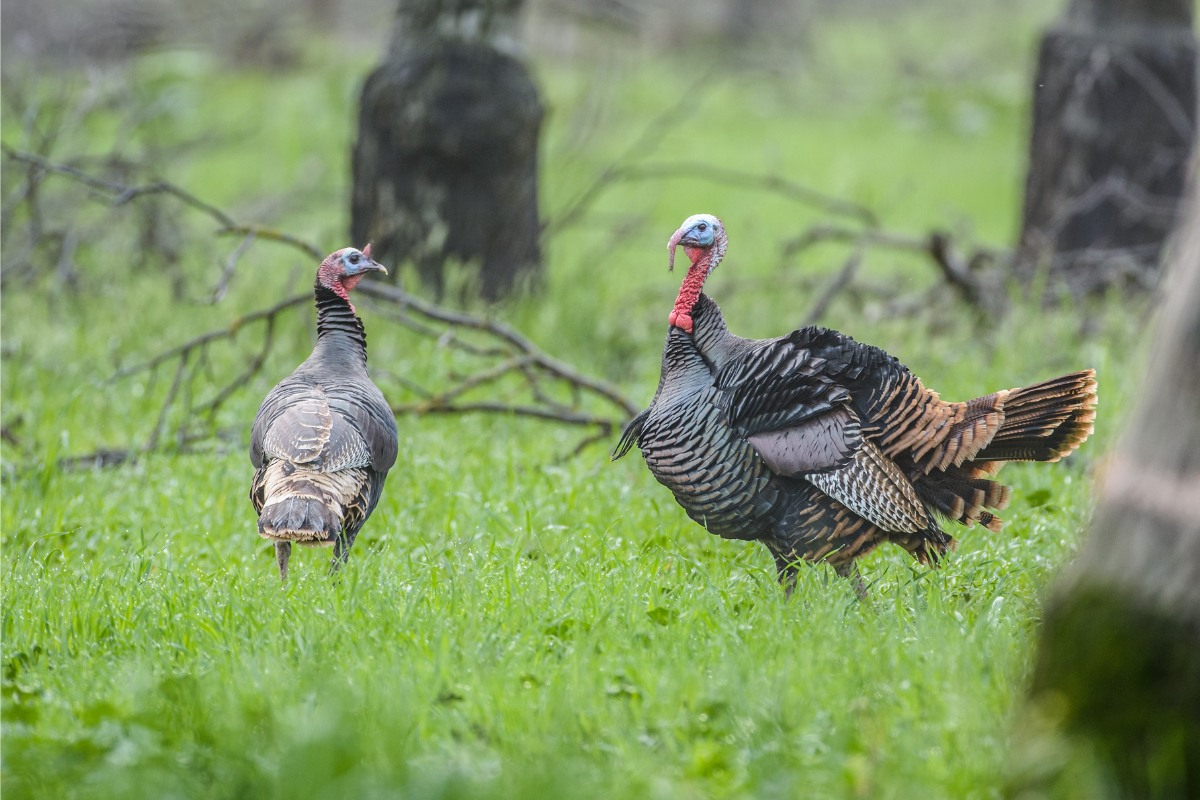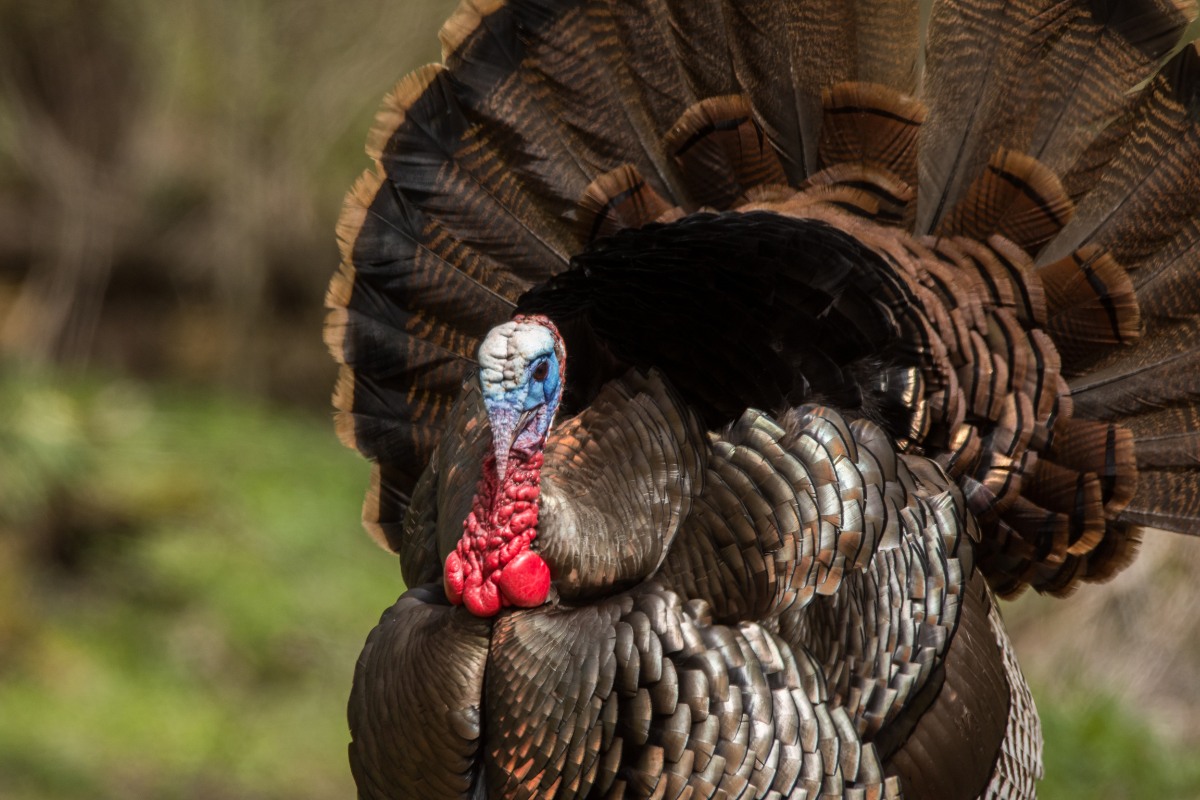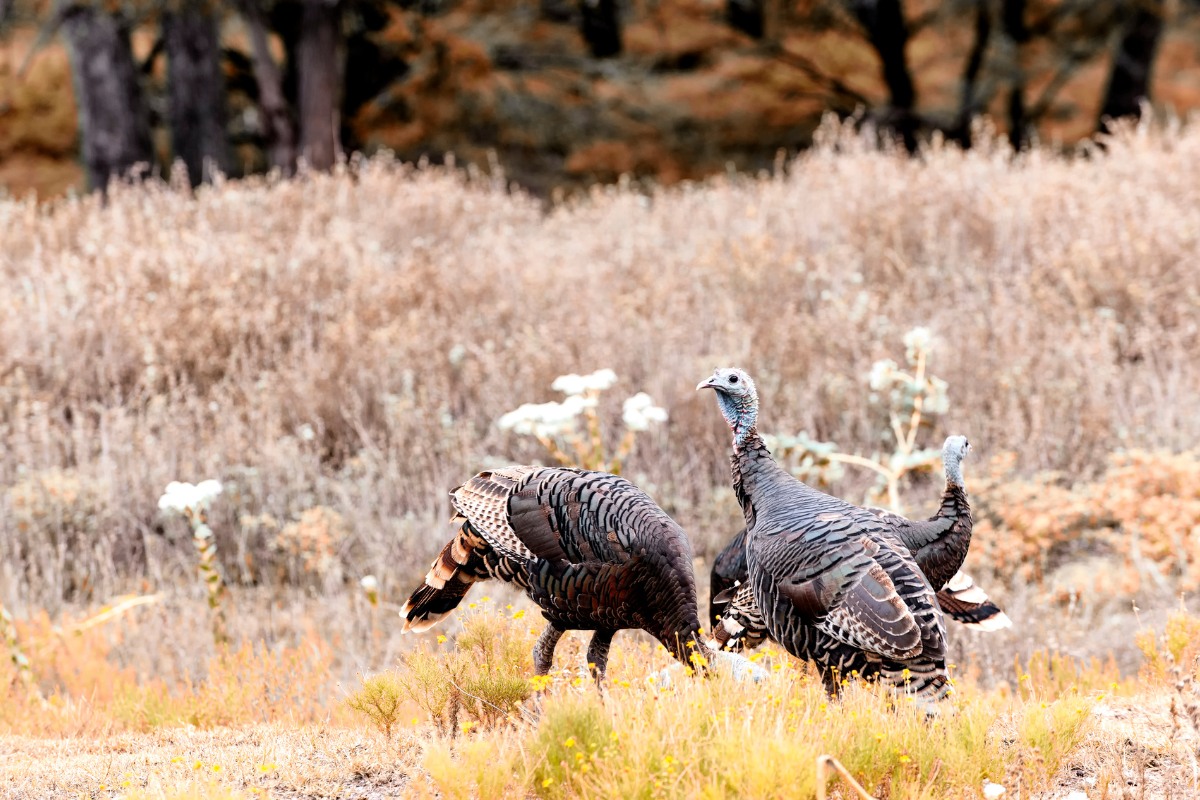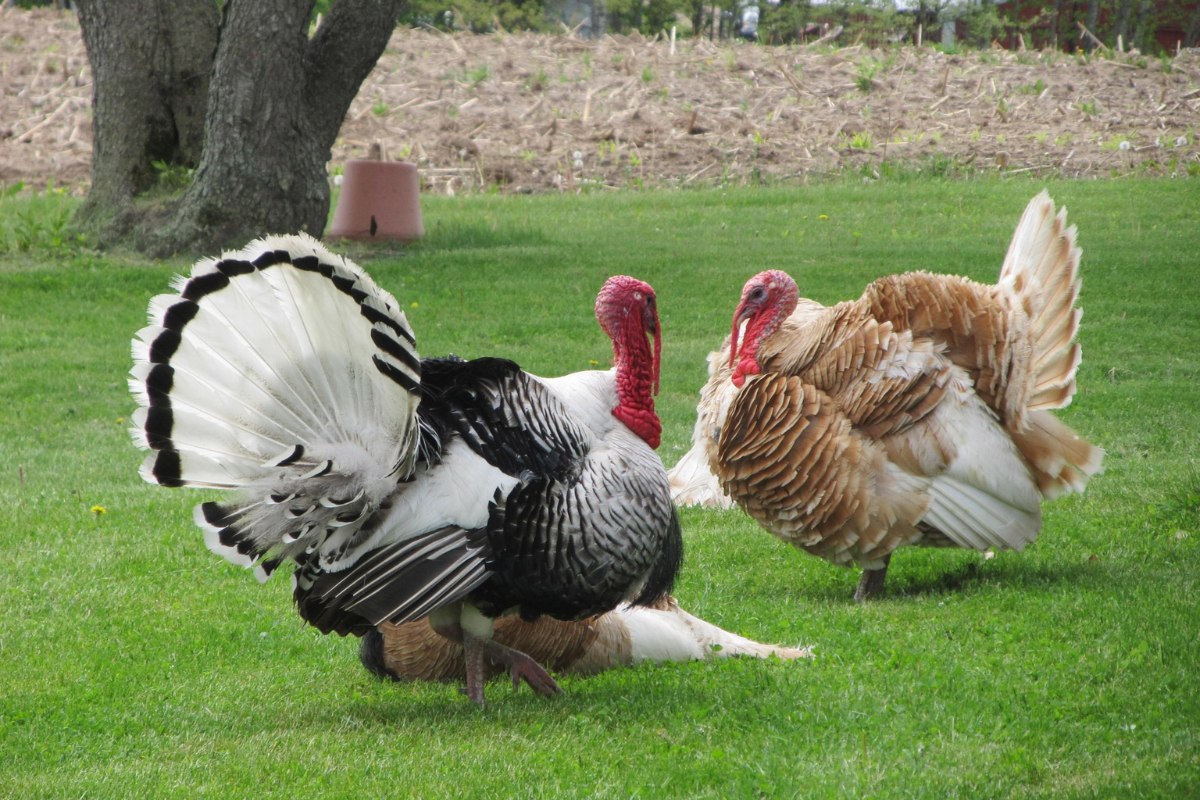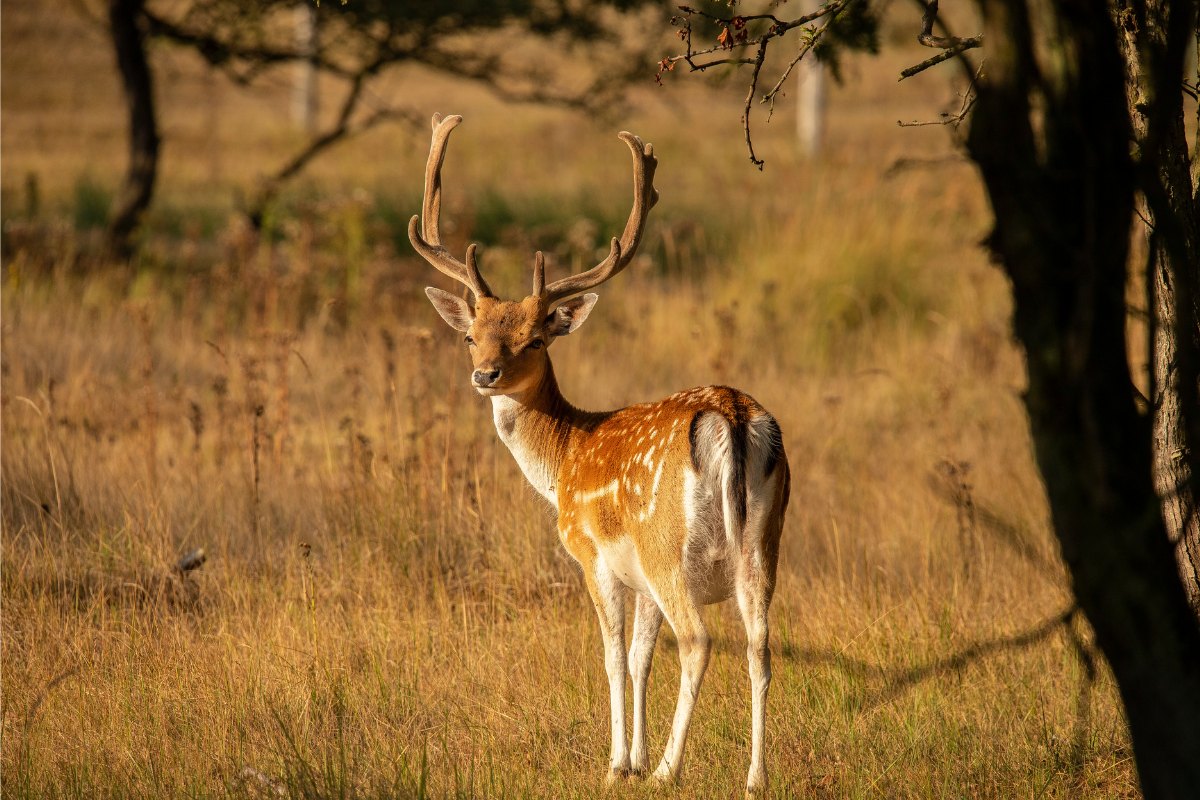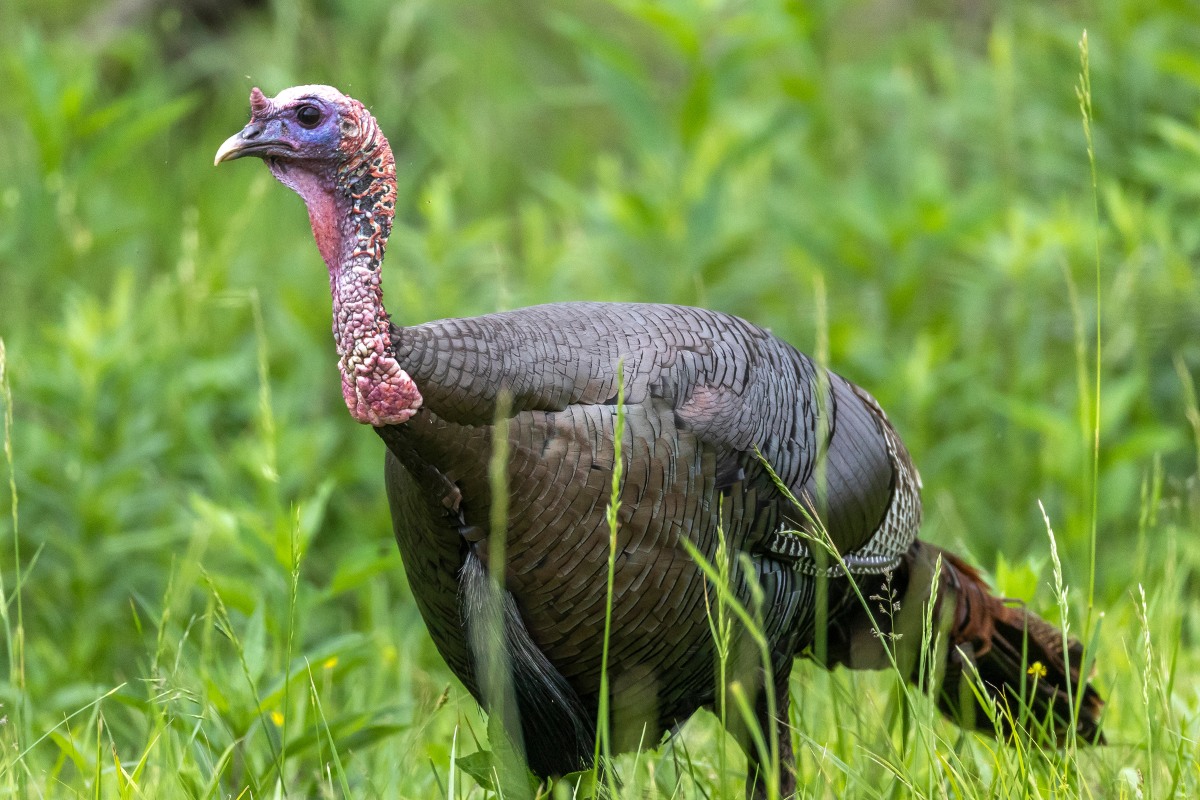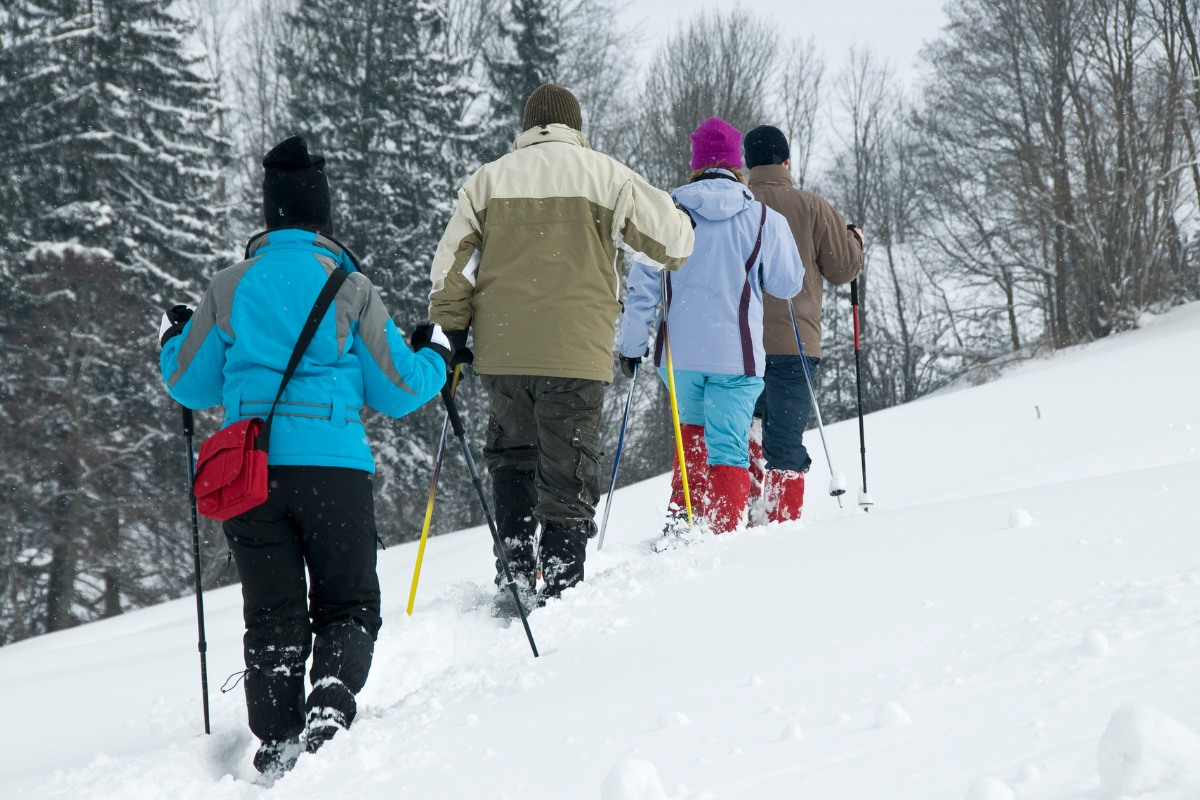One question we hear often is, at what time should I hunt turkeys? Is it the morning, perhaps the afternoon, or maybe at night when they roost? Most hunters will gravitate towards the idea of the early bird catching the worm. But, this isn’t necessarily true when it comes to hunting gobblers. You can find turkeys at any point in the day. Ultimately, the deciding factor of the best time to hunt turkeys will be whenever you have the opportunity.
After all, hunters lead busy everyday lives. There is no reason to miss out on a hunt simply because it’s not the “optimum” time of the day to find them. But, that’s not to say there aren’t advantages in each timeframe. Read below to learn more about the best times of the day to hunt turkeys.
Factors
Before you set off, consider the following aspects. These will ultimately affect the time you hunt. Keep them in mind whenever you are planning a hunting trip.
Season
Fall and spring each affect a turkey’s behavior differently. Toms are bolder during the breeding season in mid-March to early June. The best places to look for them during this time are in weedy areas with low grass. However, that is not to say they’re cowardly during the autumn.
The fall season is when turkeys are looking for all that extra food they will not have during the winter. Take advantage of the fallen foliage to scout for roosts. If you’re an unscrupulous hunter looking for a meal, shoot them while they’re roosting. If you are in a state that forbids that particular behavior, set a camp below their roost in the morning.
You will want to wait until morning time when they all start coming down. After that happens, it’s fair game for you and the turkeys. Additionally, you will want to remember that during this season, they will spend their time in the deeper woods.
Weather
Turkeys prefer calmer days where the wind is not blowing harshly. Harsher climates such as rain and strong winds will make them both inactive and quiet.
Hunters also suffer from a lack of hearing and visibility during rainy or windy days. As such, it’s not advantageous to hunt during these times.
Atmospheric Pressure
As strange as it sounds, the barometric pressure will affect a turkey’s behavior. Barometric pressures in ranges of approximately 30+ or – inches make them more active.
Region
While turkeys generally prefer heavily forested zones, they have adjusted to deforested areas pretty well. Down here in Northwest Florida, the best places to hunt are located in Alabama. However, in the northern regions of the States, the best spots are in New York and Pennsylvania. Other popular states include Missouri and Wisconsin.
Finally, keep in mind that in the United States, you can legally hunt turkeys (during the appropriate seasons) in 47 states.
Best Times to Hunt Turkeys
Now that we have covered all the basics, let’s get to the real show. All turkeys will behave differently depending on their temperament. However, as the day moves forward, hunters will discover each time comes with its own set of advantages and challenges. Let us cover each one as concisely as possible.
Morning
Nothing is quite as exciting as hunting at dawn. Waking up in the crisp morning and leaving before the sun rises can be advantageous to any hunter, especially as it gives hunters plenty of time to set traps, decoys, and ground blinds.
To make the most out of morning hunts, you will want to hunt during the beginning and ending parts of the seasons. Toms are actively looking for hens at this point, and they will not waste their time in doing so.
However, during the middle of the seasons, they have already gathered a decent amount of hens in their flock. As such, decoys will not be as effective. After all, there is no sense in looking for more females if they already have ten or more in their harem.
Although, this does not mean that it is impossible to hunt a turkey mid-season, just harder. It is the reason why most hunters recommend hunting as soon as you are legally able to start.
It all boils down to simple math. Toms and jakes will be actively trying to establish themselves high in the pecking order during the earlier parts of the season. To that end, they will start looking for hens early in the morning. These are going to be your primary target. Just set down a few decoys and wait, start making some calls, and wait. You’re almost guaranteed to score a kill.
Mid-Morning
Assuming you are not an early bird, you will want to try your hand at hunting in the latter parts of the morning instead. You will still have a fair shot to bag a kill at this time, especially during the previously mentioned, earlier and later parts of spring and fall.
Your biggest targets during this point of the day are jakes and toms who have lost their mates. A lonely turkey is a lovesick one, and you can bet it will be looking for companionship.
If you are familiar with the area, use your prior knowledge of roosting, feeding, and popular hangout spots to prepare an ambush. You are likely to find toms strolling through these areas in search of hens throughout their day.
Use a combination of calls and decoys to gain their attention, and you will be set.
Afternoon and Evening
In the afternoon and evening, toms and jakes will be looking for an overnight companion. Wait near the perimeters of hen hotspots for a turkey to pass by. With a bit of luck, you will score a kill. However, there is a major difference between mid-morning hunts and afternoon ones. As the sun starts going down, hens become less vocal. Toms know this, and they will not be as responsive to your calls.
Nighttime Hunts
Certain states do not allow hunters to hunt at night. For both legal and safety reasons, we do not advise hunters to try their hand at nighttime hunts. At least not without keeping local laws in mind, and taking additional steps to ensure your safety. However, with that being said, let’s delve deeper into the night.
During a full moon, you can take advantage of the visibility to spot any turkeys that might be roosting. It is extremely unsportsmanlike, but if your state allows it, feel free to shoot them as they sleep. Just make sure you only hit the tom you want.
Do we recommend taking such drastic action? No, and it is generally frowned upon by the hunting community to kill turkeys while they sleep. Not only does it provide zero challenge, but also it is not a testament to your skill.
When you are hunting at night, you want to hunt something that can provide a challenge such as a boar, not a sleeping bird in a tree.
Last Tidbits
Just a few hints before you set off.
Apps and Tech
Use technology to your advantage. Nowadays, we use technology for a myriad of hobbies. Hunting is no different, thanks to apps such as:
Sundroid
Used for calculating the times for sunrise, sunset, and every type of astrological calculation that a hunter needs.
MotionX GPS
Helps hunters get a good sense of location through topographical maps, personal movement recording, elevation, and waypoints.
Huntwise
Provides information on the area as well as GPS. Additionally, Huntwise has an active community of hunters who can share information throughout the day.
These apps are a fantastic way to get information on current hunting trends. Don’t hesitate to take every advantage at your disposal.
Use Every Tactic Possible
Regardless of the time of day, the best way to hunt a turkey is to use a combination of tools, tactics, and knowledge.
Familiarize yourself with the areas you’ll be frequenting, this will help you plan out ambushes. Use decoys and calls to your heart’s content. The best places to use these are in those same areas you’re planning to attack.
Hunting with shotguns and rifles is effective, but don’t disregard the value of a good bow. They’re silent and require a high level of skill to use effectively. You’ll want to practice using these at the range before setting out, as well as familiarizing yourself with turkey anatomy.
Follow the laws of your state and don’t break any rules that will revoke your hunting license.
Conclusion
Understanding the modus operandi of a turkey helps during hunts. Gobblers tend to be erratic, and their personalities/habits will vary accordingly. Different breeds, especially, come with unique traits that can make them hard to predict. As such, the best people to ask are local hunters. Nevertheless, we can safely tell you that whether you hunt in the morning, afternoon, or evening, you can still succeed. The only things necessary are skills, patience, and a whole lot of luck.
Ultimately, whatever time you decide to go hunting, ensure your state allows it. Game wardens don’t take kindly to hunters illegally strolling through their woods at night. As always, you’re there to have fun; whether you succeed or fail, you’ll gain experience. This knowledge will inevitably help you narrow down the best times to hunt in your area!
